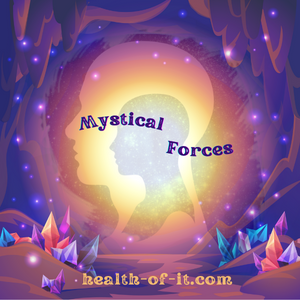Enchanting Insights into Hormones and Emotions
Welcome to the enchanted realm of the human body as we gain insight into hormones and emotions. This is where the mystical forces known as hormones weave their spellbinding tales. Within this magical ecosystem, hormones reign supreme, orchestrating a symphony of physiological functions and emotional escapades. In this mystical journey, we’ll unravel the secrets of these potent elixirs and their enchanting dance with our emotions.
Mystical Forces Revealed
Serotonin: Embark on a voyage with serotonin, the Serene Sorcerer of emotions.
This mystical neurotransmitter casts its calming spell, banishing the shadows of sadness and anxiety.
Behold as it conjures feelings of contentment, happiness, and tranquility, transforming your inner landscape into a serene sanctuary.
Dopamine: Prepare to be dazzled by dopamine, the Charismatic Enchanter of pleasure and reward.
With a flick of its magical wand, dopamine sparks the flames of motivation and desire, guiding you on exhilarating quests for joy and fulfillment.
Let its enchanting allure ignite your passions and fuel your dreams, for within its embrace lies the promise of boundless excitement and unwavering determination.
Cortisol: Enter the realm of cortisol, the Mystical Guardian of stress and tension.
As it weaves its protective veil, cortisol stands guard against the perils of adversity, sharpening your focus and bolstering your resolve.
Yet beware, prolonged exposure to its potent magic may stir the winds of anxiety and unrest, casting shadows upon your once-peaceful shores.
Oxytocin: Embrace the enchantment of oxytocin, the Love Elixir.
Like a warm embrace from an old friend, oxytocin nurtures bonds of trust and empathy, weaving a tapestry of intimacy and affection.
Let its gentle magic wash over you, for in its tender embrace, you’ll find solace, companionship, and the true essence of belonging.
Adrenaline: Summon the courage of adrenaline, the valiant Courageous Crusader of fear and excitement.
Adrenaline charges into battle with a mighty roar, empowering you to face your fears and conquer the unknown.
Feel the surge of exhilaration as it courses through your veins, igniting the flames of bravery and fortitude in the face of danger.
Progesterone and Estrogen: Dive into the depths of progesterone and estrogen, The Harmonious Sirens of femininity and grace.
With their ethereal melodies, they guide the ebb and flow of the feminine spirit, painting the canvas of emotion with hues of passion, sensitivity, and resilience.
Embrace the rhythm of their dance, for within their embrace lies the sacred essence of womanhood.
Farwell Magical Dance
As we bid farewell to this enchanting odyssey, let us heed the wisdom of the mystical hormones that dwell within us.
For in their delicate balance lies the key to unlocking the secrets of our emotional tapestry.
So, let us embark on this magical journey with open hearts and curious minds.
Embracing the wondrous dance of hormones and emotions that shape our enchanted lives.
